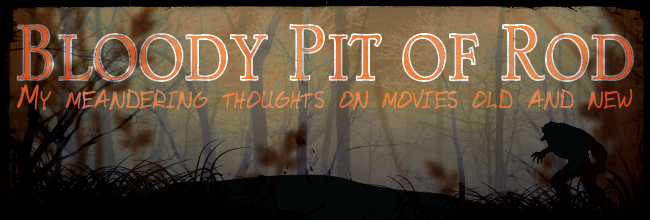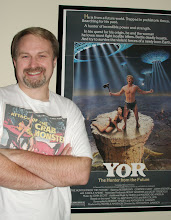This past week I finally got around to crossing a classic
Film Noir off my “Need to Watch’ list. I had read for years about NIGHTMARE
ALLEY (1947) and its supposedly harsh story of a smart, charming sociopath who
is able to move from Carnival hustler to Séance conductor as he furthers his
goal of becoming as rich as possible. I was curious as to how a film produced
in the 1940s would portray such a character and if indeed the ending would come off as rough and nasty as I had been lead to believe. Or would the
film find a way to cop out?
The other point of interest I was curious to check out was
that the self-centered con-artist is played by Tyrone Power. I’ve been a fan of
his for a long time based mostly on his fun adventure movies such as THE BLACK
SWAN and THE MARK OF ZORRO so I knew his onscreen persona. I wondered if the
studio system as it stood in the post-war era would really let a handsome
leading man like Power depict a character that the audience would have to
eventually come to hate. Also, could the actor make me believe that he was that
sociopath monster? Could Tyrone Power convince me he was someone capable of the
hideous actions I knew he would have to engage in to be seen as a credible high
level scammer?
The answers to these questions are complex. First, Power is
very good in NIGHTMARE ALLEY. He turns in a fine performance and proves himself
able to communicate a wide range of the complex emotions required even when the
script sometimes falls down. It is these rare script failings that I think are
the only problems the film really has. This trouble is best illustrated in an
early dialog exchange between Power’s character Stan and Joan Blondell as Zeena
when he actually says something to the effect of “I wonder why I am this way.
Why do I never think about anyone other than myself?” This is a terrible scene
and is so bizarre that it nearly made me laugh out loud. Although this is early
enough in the movie so that we are not yet aware of how dark his chosen path
will be, the fact that he is self-reflective enough to ask this question is
silly. For Stan to have recognized this aspect of his personality would mean
that he was aware that it IS a problem. But by his actions and statements
throughout the remainder of the story it is clear he does not think his way of
looking at life and the people around him is a problem at all. He is a user of
people and others are only as useful to him in that they might benefit him in
some way. He has no concern for people or their feelings and he proves it repeatedly.
Self-reflection is just not going to be in him! Of course, I suspect this odd
bit of dialog was placed in the film as a sop to the suppressive Hayes Code in
effect at the time. The de rigueur censorship of the time would require a great
deal of care if this tale was going to be brought to the screen in any form.
This bit of verbal explication of Stan’s lack of empathy is tin eared in the
extreme but I’m sure when the film was produced it was seen as the best way to
get this character onscreen in any form. Having him spell out his internal
defect so bluntly might have been considered necessary to show the audience of
the time that something serious was wrong with him. It doesn’t play well now
but it may have in 1947.
So, as far as the film showing us a dark portrait of a
disturbed but high functioning, ruthless man it succeeds even as it trips
itself up in a few scenes. The parts that ring false in the movie don’t stop it
from showing us a malicious man who is dealt a harsh fate by his own hand. The
movie is very compelling and it’s always fun to watch an evil person go about
their business in an entertaining way. As for the ending- I’ll leave it for
fresh viewers to discover it for themselves but I must say I was impressed. The
film telegraphs the final turn far too clearly, far too early but it works just
the same. This is a very good Noir and one I know I’ll return to in the future.
I’m sad that it took me so long to finally see this great movie.










No comments:
Post a Comment